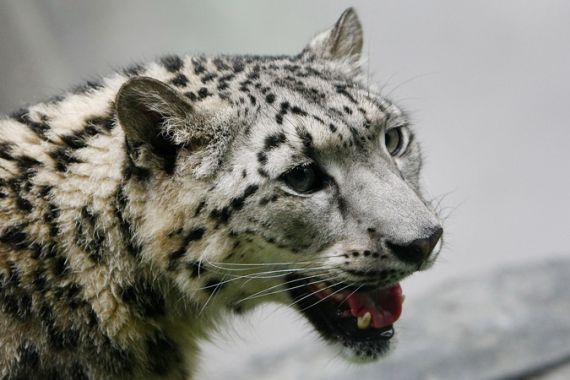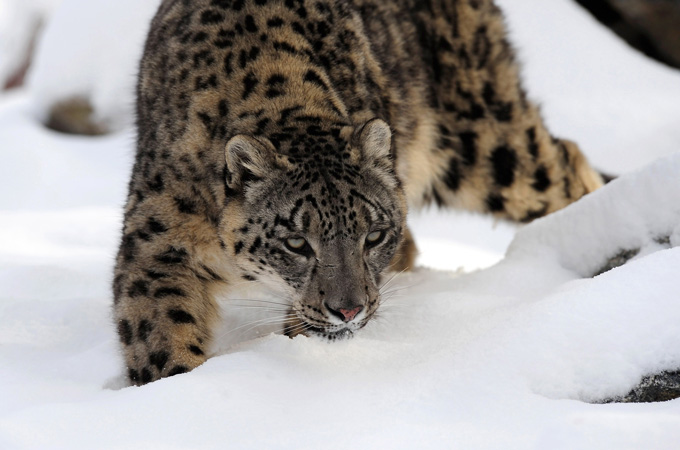Rare snow leopards found in Afghanistan
New population of globally threatened species, dubbed world’s most elusive big cat, found in northeastern mountains.

 |
| Only between 4,500 and 7,500 snow leopards remain in the wild [GALLO/GETTY] |
A surprisingly healthy population of snow leopards – a globally threatened species generally found in the high mountain ranges of Central Asia – has been discovered in one of the few peaceful areas of Afghanistan, a wildlife group said.
The discovery in northeastern Afghanistan’s Wakhan Corridor gives hope to the world’s most elusive big cat, a study by the Wildlife Conservation Society (WCS) said this week.
Keep reading
list of 4 items‘Don’t be afraid for the marshes’: The battle to save Iraq’s waterways
Why has the flooding in Kenya been so devastating?
‘First time’: Wild orangutan performs self-medication
“This is a wonderful discovery – it shows that there is real hope for snow leopards in Afghanistan,” said Peter Zahler, WCS deputy director for Asia programmes.
“Now our goal is to ensure that these magnificent animals have a secure future as a key part of Afghanistan’s natural heritage.”
Snow leopards have declined by as much as 20 per cent over the past 16 years and are considered endangered by the International Union for Conservation of Nature (IUCN).
Camera traps set up by the WCS documented the secretive, usually solitary animals at 16 different locations across the Wakhan Corridor, a long panhandle free from the fighting that plagues most of the country, the group said in a statement.
Only between 4,500 and 7,500 snow leopards remain in the wild, scattered across a dozen countries in Central Asia. The cats are poached for their pelts and killed by shepherds guarding their flocks upon which the leopards sometimes prey.
The sleek, fuzzy-tailed leopards are also captured for the pet trade, while an increasing demand for their penises and bones in China – where some believe they enhance sexual performance – has also led to their decimation.
Conservation initiatives
In response to the threats against snow leopards, the WCS has developed a set of conservation initiatives to protect them, including partnering with local communities, the training of rangers, and education and outreach efforts, the group’s statement said.
The New York based society, which works with the US government’s aid arm, USAID, is also providing conservation education in every Wakhan school.
Anthony Simms, lead author and the project’s technical advisor, said, “By developing a community-led management approach, we believe snow leopards will be conserved in Afghanistan over the long term.”
The group has been working in the Wakhan Corridor, which borders China, Pakistan and Tajikistan, since 2006 on protecting wildlife including the Marco Polo sheep and the ibex.
George Schaller, a wildlife biologist with the society, has proposed creating a reserve in the region.
The WCS statement did not estimate the number of leopards in the corridor, but said they remained threatened.
In the past three decades, nearly 80 cubs have been born in the Bronx in New York, and have been sent to live at 30 zoos in the US and eight countries in Europe, Asia, Australia, and North America.